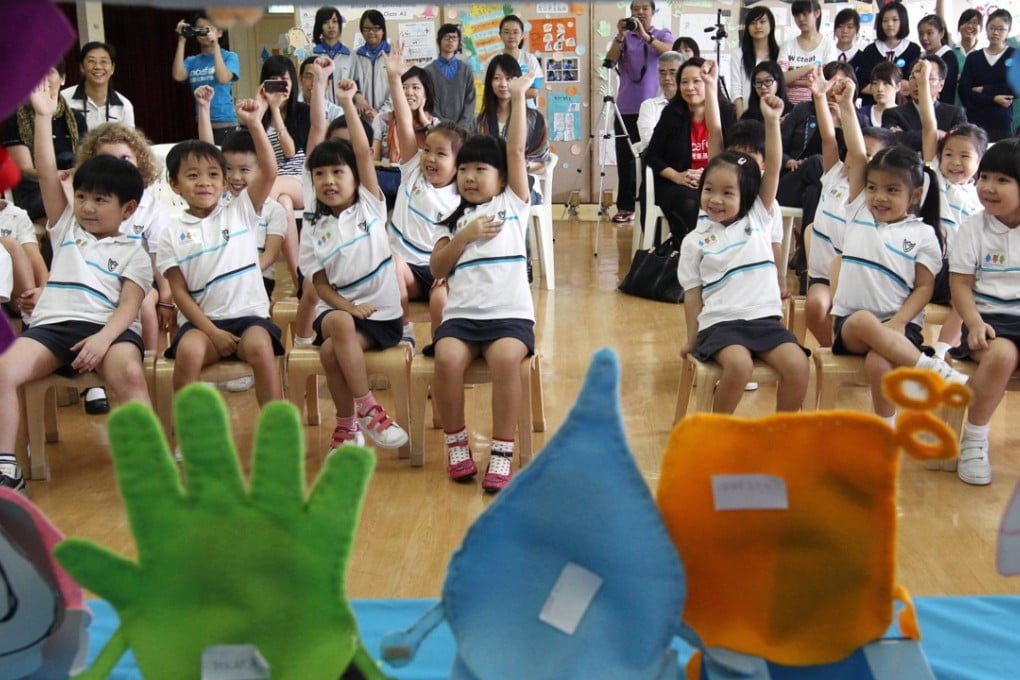Drill or chill: How to prepare for a kindergarten interview
The interview’s objective is to show the school how you nurture your child, instead of parading your awards

Kindergarten interview preparation kits can range from experts’ workshops to résumé-writing tutorials, but many parents debate whether they should coach their young for such meetings. So admissions expert Leung Wing-lok tells parents how they can help their child find the most suitable school and not push them too hard.
Parent: Are résumés necessary?
Leung: Honestly speaking, many kindergartens do not accept résumés any more. They’re “nice to have”, but unnecessary, so to speak. Remember, the main objective of the interview is to show the school how you nurture your child, instead of parading your awards. An important point generally missed is whether schools truly seek multi-skilled children juggling several hobby classes. Not necessarily. While there are exceptions, most schools wish to recruit kids with a balanced lifestyle who are not forced into a very busy schedule. Also, nearly every child can get a slice of the cake in most of the “competitions” out there – and schools are well aware of that. This is why – contrary to the number of trophies – schools are more interested in where the child’s passions lie.
Honestly speaking, many kindergartens do not accept résumés any more.
P: What level of maths or language is expected of my child?
L: The ability to identify colours and shapes, as well as counting and building simple structures with objects are common parameters that candidates are judged on. Mathematical skills like addition and subtraction, on the other hand, are not required at this level. Simple English is sometimes tested too, in terms of cognition and ability of expression.
P: Is there any difference between the interviews in local and international kindergartens?
L: International kindergartens usually have longer interview sessions, and allocate more time to group play sections; whereas local kindergartens are shorter, and usually only consist of parent-accompanied chats and easy tasks.
P: How can I prepare myself for the interview?
L: While separate interview sessions with parents are unusual, the presence of parents is usually required during chats with children. It is common to see parents who cannot resist the urge to answer for the child, but bear in mind untruthful, recited answers are easily spotted. For instance, when asked about family weekend pastimes, some parents would make up more “children-friendly” locations like the park or the library to impress teachers. While it is difficult and wrong to force children that young to be your “accomplice”, telltale signs like a dubious look on the child’s face will quickly give away the truth.
Schools usually concentrate on two things in parents: their relationship with the child, and their relationship as a couple.
P: What are some of the worst scenarios in interviews?
L: Schools usually concentrate on two things in parents: their relationship with the child, and their relationship as a couple.
The former focuses on whether the child shows over-reliance on the parents, with symptoms such as glancing at them when answering questions.
As for the latter, teachers have reflected seeing a worrying growth of couples blaming each other during interviews. Recently a headmaster shared an episode where a parent was giving the other half a hard time about his outfit, all the way to the classroom door. In other cases, something as trivial as late bedtime, a common bad habit among kids, could trigger accusations between spouses. Contradictory views and impatient attitudes would further highlight the discrepancy between how a couple educates their child.
In the end, the relationship between parents would inevitably affect the child’s emotions.